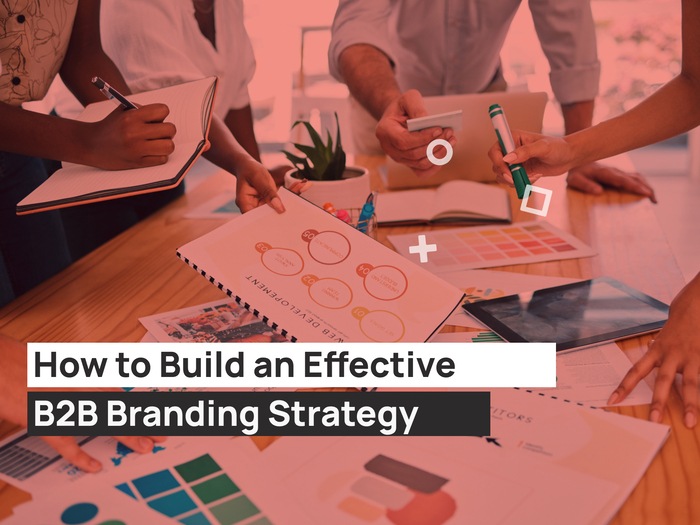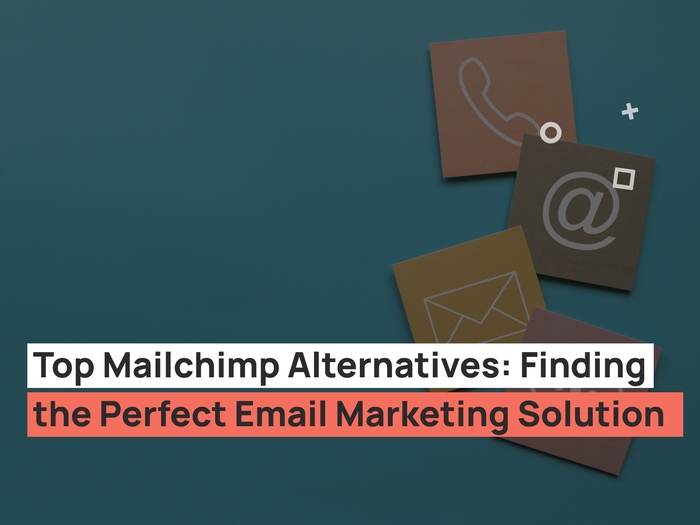Crafting an enjoyable and distinctive encounter stands as a potent method for forging connections with customers, instilling within them a curiosity about a brand and its offerings. By delving into experiential marketing initiatives, brands can distinguish themselves from the competition and form genuine connections with their intended audience.
Continue pursuing to delve deeper into this winning strategy and discover the secrets to cultivating an enhanced consumer experience.
What Is Experiential Marketing?
Experiential marketing, often referred to as “engagement marketing,” represents a marketing approach that encourages audience interaction with a business in a real-life context. By utilizing participatory, hands-on, and tactile branding elements, companies have the opportunity to convey not only their products or services but also their core values and identity to customers.

Experiential marketing can take various forms, including live events, pop-up shops, interactive installations, virtual reality experiences, and online campaigns that encourage participation. The core principles of experiential marketing involve immersion, engagement, evoking emotions, and authenticity to create a meaningful and authentic connection between the brand and its audience. The ultimate goal is to build brand loyalty, generate word-of-mouth buzz, and drive consumer engagement and advocacy.
Advantages Of Experiential Marketing
Deepened Consumer Engagement
Experiential marketing actively involves consumers, encouraging them to participate, interact, and immerse themselves in the brand’s story. This heightened engagement can lead to stronger emotional connections with the brand.
Memorable Experiences
Creating unique and memorable experiences leaves a lasting impression on consumers. They are more likely to remember and talk about these experiences, which can generate word-of-mouth marketing and social media buzz.
Go Viral
Experiential marketing campaigns, designed to create immersive and memorable brand experiences, possess the innate qualities that can propel content or experiences into the realm of internet virality. By fostering user-generated content, encouraging real-time social sharing, and delivering unique, emotionally resonant moments, experiential marketing generates the kind of engagement that prompts participants to enthusiastically share their experiences with their networks.
Improved Brand Perception
When consumers have positive and enjoyable interactions with a brand, it can positively influence their perception of the brand. Experiential marketing allows businesses to shape how customers perceive them.
Increased Brand Loyalty
Building a genuine connection with consumers through experiential marketing can foster brand loyalty. When customers feel a deeper attachment to a brand, they are more likely to remain loyal and make repeat purchases.
Differentiation from Competitors
In a crowded marketplace, experiential marketing sets brands apart from their competitors. Creating unique and immersive experiences can make a brand more memorable and appealing.
Direct Sales Opportunities
In some cases, experiential marketing can lead to immediate sales opportunities. For example, pop-up shops or events can provide consumers with the chance to purchase products on the spot.
Brand Authenticity
Authenticity is a key component of experiential marketing. When brands create genuine, meaningful experiences, it reinforces their authenticity and builds trust with consumers.

Customer Insights
Interacting directly with consumers during experiential marketing events can provide valuable insights into their preferences, needs, and pain points. Brands can use this information to tailor their offerings and marketing strategies.
Effective Strategies
Pop-Up Shops
Pop-up shops are temporary retail spaces that appear for a short period, typically in high-traffic locations or during specific events. These temporary stores allow brands to create a physical presence and provide customers with a unique shopping experience.
Pop-up shops are often used to launch new products, test new markets, or create excitement around a brand. They can be customized to align with a brand’s identity and theme, offering consumers a limited-time opportunity to explore and purchase products in a unique setting.
Event Marketing
Event marketing involves the planning and execution of live events or experiences with the primary goal of promoting a brand, product, or service. These events can take various forms, such as trade shows, product launches, conferences, workshops, and festivals.
Event marketing allows brands to directly interact with their target audience, showcase their offerings, and create memorable experiences. It often includes elements like engaging presentations, interactive displays, product demonstrations, and opportunities for networking. Event marketing can be a powerful strategy for building brand awareness, generating leads, and fostering customer relationships.
Guerrilla Marketing Campaigns
Guerrilla marketing campaigns are unconventional and creative promotional efforts designed to capture attention and generate buzz in unexpected ways. These campaigns typically rely on unconventional and low-cost tactics to make a big impact.
Examples include flash mobs, public stunts, street art, and clever social media campaigns. Guerrilla marketing campaigns often aim to surprise and delight the audience, sparking conversations and social media sharing. The element of surprise and the ability to stand out from competitors are key features of guerrilla marketing.
Brand Activation
Brand activation refers to the process of bringing a brand to life and engaging consumers through various experiences and touchpoints. These experiences are designed to connect with consumers on a personal level, foster brand loyalty, and drive action.
Brand activation initiatives can include experiential marketing campaigns, product sampling, influencer collaborations, and interactive installations. The goal is to make the brand more tangible and relatable to consumers, allowing them to connect with the brand’s values and messaging on a deeper level. Successful brand activation can lead to increased brand recognition, consumer engagement, and conversions.
Crafting an Experiential Marketing Campaign
Define Your Audience

At the core of crafting a compelling experiential marketing campaign is the clear identification of your target audience.
- Begin with thorough market research, delving into demographics, psychographics, and behavioral patterns. Develop detailed customer personas that encapsulate the essence of your ideal customers, including their values, motivations, and interests.
- Segment your audience into distinct groups based on common characteristics, allowing for tailored approaches.
- Engage with existing customers through surveys and interviews to gain direct insights into preferences and expectations.
- Continuously refine your audience profile as you gather more data and insights.
Establish Objectives
Setting clear and measurable goals is an essential initial step in the creation of an experiential marketing campaign. These goals should align with your overall marketing objectives and provide a roadmap for the campaign’s direction.
To ensure the success of your experiential marketing endeavor, precision is key.
- What specific brand message do you want consumers to grasp?
- How will you gauge the effectiveness of your campaign?
While certain advantages of interactive marketing, such as fostering brand affinity, hold significant importance, they can be challenging to accurately quantify. Therefore, it is crucial to measure what lies within your reach.
Create Memorable Experiences
Capturing the attention of your target audience is pivotal, as it enhances the likelihood of being etched in their memory and paves the way for potential future purchases. Setting yourself apart by offering a unique and enjoyable experience becomes the cornerstone of creating a distinctive presence in people’s recollections.
When your brand delivers something exceptional and engaging, it lingers in the minds of your audience, not merely as a fleeting encounter but as a memorable engagement that stirs curiosity and fosters a lasting connection.
This approach, characterized by its uniqueness and enjoyment, serves as the ultimate tool to carve a niche in the hearts and minds of your audience, positioning your brand as a standout choice for their future needs.
Experiential Marketing Examples
House of Vans
Vans organized pop-up events in skateparks located in major cities like New York City and Chicago. These events served as gathering spots for skateboarders, offering them a place to socialize, enjoy live music, and engage in skateboarding sessions.
Notably, Vans leveraged these skatepark-based pop-ups to promote the launch of their new shoe collection paying tribute to David Bowie. Given Vans’ prominent position as a leading brand in skateboarding footwear, organizing pop-up events in close proximity to skateparks emerges as a seamless and fitting approach for an experiential marketing endeavor.
Last Square
Chocolate company Milka initiated a campaign in which they intentionally omitted a single square of chocolate from purchased bars—a small but immediately noticeable absence for customers.
The motive behind this gesture? Milka presented customers with a choice: they could opt to have the missing piece mailed to them, or they could select the alternative of sending the chocolate along with a personal note to someone else.
While seemingly modest, this act from those fortunate enough to receive an imperfect chocolate bar underscored the power of small gestures, leaving a lasting impression and fostering goodwill. Additionally, it proved to be an effective strategy in raising awareness for the Milka brand.
Build Together Campaign
LEGO’s “Build Together Campaign” serves as an outstanding illustration of experiential marketing that centers on enhancing familial connections through collaborative creative endeavors. This initiative actively promotes the coming together of families to embark on imaginative LEGO adventures, nurturing a spirit of togetherness and deepening the loyalty of consumers.
It has not only propelled customer engagement but also reinforced LEGO’s core brand principles. By constructing an immersive experience that beckons participants to unite and craft together, LEGO has adeptly captured the affections and imaginations of families across the globe, vividly illustrating the potency of experiential marketing in forging robust bonds with consumers.
Share a Coke
Coca-Cola’s ingenious campaign, famously known for the “Share a Coke” initiative, revolutionized the beverage industry. The campaign, launched in various countries around the world, involved printing individual names on Coca-Cola bottles and cans, allowing customers to find their own name or the names of loved ones on the iconic red label.
This personalized touch created an emotional connection between the brand and consumers, fostering a sense of inclusivity and camaraderie. People enthusiastically shared their unique finds on social media, turning the simple act of buying a soda into a memorable and shareable experience.
Coca-Cola’s “Share a Coke” campaign showcased the power of experiential marketing to forge a deep bond between a global brand and its customers, making it a benchmark for successful marketing endeavors.
Night At
Airbnb’s “Night At” campaign offered unique overnight experiences in iconic locations. For instance, Airbnb transformed the Louvre Museum in Paris into a temporary Airbnb listing, allowing a lucky winner to spend the night among priceless artworks.
Similarly, they offered stays in the famous LEGO House in Denmark, a KLM airplane, and even Dracula’s Castle in Romania. These one-of-a-kind experiences captured the imagination of the public and showcased the brand’s commitment to creating unforgettable memories through travel.
Airbnb’s “Night At” campaign demonstrated how experiential marketing can push the boundaries of creativity and generate widespread attention and buzz for a brand.
What’s Next?
The horizon for experiential marketing shines brightly, marked by the ongoing fusion of technology, personalization, and a burgeoning emphasis on sustainability and social responsibility. As technology continues its relentless march forward, we can anticipate an influx of immersive experiences harnessing virtual reality, augmented reality, and other groundbreaking innovations to enthrall consumers and ignite brand engagement.
Moreover, in an era where consumers increasingly seek brands that mirror their values and principles, experiential marketing initiatives underscored by sustainability and social responsibility will ascend to even greater prominence.
By proactively embracing these shifts and continually adapting to cater to the preferences of their target demographics, experiential marketers will not only ensure the enduring prosperity of this dynamic marketing approach but also lead the way in shaping its future.
As you explore the exciting world of experiential marketing, don’t forget the digital landscape that complements these immersive experiences. At UPQODE, we specialize in crafting digital marketing strategies that amplify the impact of experiential campaigns.



